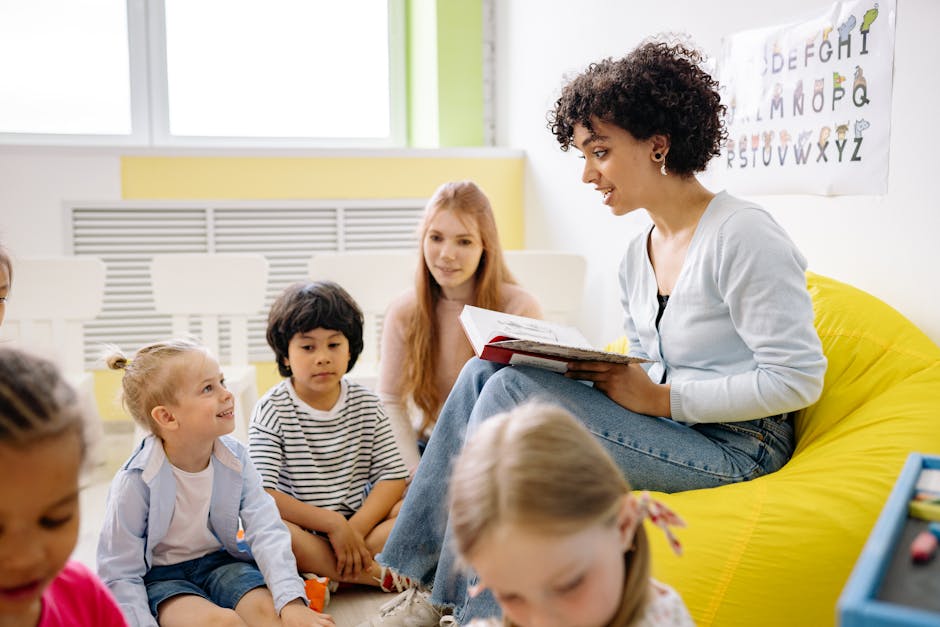Ever wondered how to make learning stick for a lifetime? This blog post will reveal the most effective study techniques that enhance learning retention, making lifelong learning not just a possibility, but a reality. Keep reading to discover how to transform your study habits and unlock your full learning potential.
Key Takeaways
- Understanding the concept of learning retention and its importance in lifelong learning.
- Exploring various strategies to enhance learning retention.
- Emphasizing the role of active learning techniques and effective study habits.
- Highlighting the importance of assessment, feedback, and maintaining physical and mental well-being.
- Discussing long-term retention techniques and the role of technology in learning.
- Understanding the influence of creativity, community, and cultural diversity in learning.
Understanding Learning Retention
Definition of Learning Retention
Learning retention refers to the ability to retain and recall information over time. It’s the cornerstone of effective learning and a critical factor in lifelong learning.
Importance in Lifelong Learning
Benefits for personal growth
Learning retention is not just about remembering facts for an exam; it’s about ingraining knowledge into your long-term memory. This allows you to build upon previous knowledge, fostering continuous personal growth.
Impact on professional development
In the professional world, learning retention can give you a competitive edge. By retaining and applying knowledge, you can adapt to changing industry trends, making you a valuable asset in any professional setting.

Key Strategies to Enhance Learning Retention
Interest and Motivation
Engaging with relevant topics
When you’re interested in a topic, you’re more likely to remember it. Choose study materials that pique your curiosity and align with your goals.
Personalizing learning experiences
Tailor your learning experiences to your preferences. Whether you prefer visual aids, auditory materials, or hands-on activities, personalizing your learning can enhance retention.
Repetition
Scheduled review sessions
Regularly reviewing material reinforces memory traces, making them stronger over time. This is known as the spacing effect, a proven technique to enhance learning retention.
Incremental learning techniques
Incremental learning involves breaking down information into smaller, manageable chunks. This technique, also known as chunking, can significantly improve retention.
Association
Linking new information to existing knowledge
Creating connections between new and existing knowledge can help you understand and remember information better. This technique is known as associative learning.
Creating mental maps
Mental maps, or mind maps, are visual representations of information. They can help you understand complex topics and remember them more easily.
Use of Multiple Channels
Incorporating visual aids
Visual aids like diagrams, charts, and infographics can help you understand and remember information better. They can also make learning more engaging and enjoyable.
Utilizing auditory materials
Listening to podcasts, audiobooks, or lectures can enhance your understanding and retention of information. This is especially beneficial for auditory learners.
Engaging in hands-on activities
Hands-on activities, or kinesthetic learning, involve learning by doing. This active learning technique can significantly enhance retention and understanding.

Active Learning Techniques
The Learning Retention Pyramid
Teaching others
According to the Learning Retention Pyramid, we retain 90% of what we learn when we teach others or use the information immediately. So, don’t hesitate to share your knowledge with others!
Practicing by doing
Practicing by doing, or active learning, involves engaging with the material, not just passively reading or listening. This can significantly enhance your understanding and retention of information.
Group Study
Enhancing understanding through discussion
Group study allows for discussion, which can clarify doubts and enhance understanding. It also exposes you to different perspectives, enriching your learning experience.
Exposure to diverse perspectives
In a group study setting, you can learn from others’ insights and experiences, broadening your understanding of the topic.

Effective Study Habits
Creating a Conducive Study Environment
Finding a good place to study
A quiet, well-lit, and comfortable study environment can enhance your focus and productivity. Find a place that suits your learning style and preferences.
Minimizing distractions
Distractions can significantly hinder your focus and learning. Try to minimize distractions by turning off notifications, using noise-cancelling headphones, or using apps that block distracting websites.
Time Management in Study Sessions
Taking regular breaks
Taking regular breaks can prevent burnout and enhance productivity. This technique, known as the Pomodoro Technique, involves studying for a set amount of time (e.g., 25 minutes), followed by a short break (e.g., 5 minutes).
Spacing out study sessions
Spacing out study sessions over time, rather than cramming, can enhance long-term retention. This technique, known as spaced repetition, is one of the most effective study techniques for lifelong learning.
Goal Setting
Setting clear objectives for each study session
Having clear objectives for each study session can keep you focused and motivated. It also makes it easier to track your progress.
Tracking progress
Regularly tracking your progress can keep you motivated and help you identify areas for improvement. You can do this by taking practice tests, reflecting on your learning, or using apps that track study time.

Assessment and Feedback
Practice Tests
Familiarization with exam formats
Practice tests not only help you familiarize yourself with exam formats, but they also enhance learning retention. This phenomenon, known as the testing effect, is a powerful tool for lifelong learning.
Identifying areas of improvement
Practice tests can help you identify areas of improvement, allowing you to focus your study efforts more effectively.
Paraphrasing and Note-Taking
Using own words to reinforce learning
Paraphrasing, or rewriting information in your own words, can enhance understanding and retention. It forces you to process the information deeply, leading to better learning outcomes.
Effective note-taking strategies
Effective note-taking strategies, such as the Cornell Method or mind mapping, can help you organize information and make it easier to review later.
Seeking Help
Clarifying doubts
Don’t hesitate to seek help if you’re struggling with a topic. Clarifying doubts early can prevent misconceptions and enhance understanding.
Strengthening understanding through external aid
External aids, such as tutors, study groups, or online resources, can provide additional support and enhance your understanding of complex topics.

Maintaining Physical and Mental Well-being
Importance of Sleep
Sleep plays a crucial role in memory consolidation, the process of transferring new memories from the short-term to the long-term memory. So, make sure to get enough quality sleep!
Healthy Lifestyle Choices
Regular physical activity
Regular physical activity can enhance cognitive function, including memory and attention. So, make sure to incorporate physical activity into your daily routine.
Balanced diet
A balanced diet can provide the nutrients necessary for brain health and cognitive function. So, eat a variety of foods, including fruits, vegetables, whole grains, lean protein, and healthy fats.

Long-Term Retention Techniques
Continuous Learning and Application
Applying knowledge in real-life situations
Applying knowledge in real-life situations can enhance understanding and retention. It also makes learning more meaningful and enjoyable.
Engaging in lifelong learning activities
Engaging in lifelong learning activities, such as reading, attending workshops, or learning a new skill, can keep your brain active and enhance long-term retention.
Reflective Practices
Regular self-assessment
Regular self-assessment can help you monitor your progress, identify areas of improvement, and adjust your learning strategies as needed.
Adapting learning strategies based on outcomes
If a learning strategy isn’t working for you, don’t be afraid to try something new. Everyone learns differently, so find the strategies that work best for you.

Leveraging Technology for Learning
Digital Tools and Resources
Educational apps and platforms
Educational apps and platforms, such as Coursera or Khan Academy, offer a wide range of courses and resources that can enhance your learning experience. They also allow for self-paced learning, making it easier to fit learning into your busy schedule.
Online courses and webinars
Online courses and webinars can provide in-depth knowledge on a variety of topics. They also offer the opportunity to learn from experts in the field.
Virtual Collaboration
Online study groups
Online study groups offer the benefits of group study, such as discussion and diverse perspectives, without the geographical constraints.
Digital discussion forums
Digital discussion forums, such as Reddit or Quora, can provide additional insights and perspectives, enhancing your understanding of complex topics.
The Role of Creativity in Learning
Encouraging Innovative Thinking
Problem-solving exercises
Problem-solving exercises can enhance critical thinking skills and promote innovative thinking. They also make learning more engaging and enjoyable.
Creative project work
Creative project work allows you to apply knowledge in a creative way, enhancing understanding and retention. It also fosters creativity and innovation, skills that are highly valued in today’s world.
Community and Cultural Influence
Learning in Diverse Environments
Exposure to different cultural perspectives
Learning in diverse environments can broaden your perspectives and enhance your understanding of the world. It also fosters cultural sensitivity and respect for diversity.
Community-based learning projects
Community-based learning projects allow you to apply knowledge in a real-world context, enhancing understanding and retention. They also foster a sense of community and social responsibility.

In conclusion, enhancing learning retention is key to lifelong learning. By implementing effective study techniques, maintaining physical and mental well-being, leveraging technology, and fostering creativity and cultural understanding, you can make learning a lifelong journey. So, are you ready to transform your learning experience?
For more insights on effective learning strategies, check out these posts on how individuals acquire new knowledge and behaviors, improving problem-solving abilities, and motivation and achievement.
Sources:
– Make Learning a Lifelong Habit
– Breaking the Cycle of Forgetfulness: Note-Taking Techniques
– Learning Retention
Unlock Your Potential: FAQ on Enhancing Retention for Lifelong Learning
What is the importance of lifelong learning?
Lifelong learning is crucial for both personal and professional development. It helps individuals adapt to changes, acquire new skills, and stay relevant in the ever-evolving job market. Embracing lifelong learning also contributes to a more fulfilling and enriched life by fostering curiosity and a love for discovery.
How can I improve my retention for lifelong learning?
Improving retention involves engaging with the material actively, using techniques such as spaced repetition, summarization, teaching others, and applying the knowledge in practical situations. Diversifying learning methods and incorporating both digital and traditional resources can also enhance memory retention.
What is spaced repetition and how does it work?
Spaced repetition is a learning technique that involves reviewing material over increasing intervals of time. It leverages the psychological spacing effect, where information is more easily recalled if learning sessions are spaced out rather than crammed in a short period. This method boosts long-term memory retention by repeatedly exposing the learner to the information.
Can digital tools enhance learning and retention?
Yes, digital tools like flashcard apps, online quizzes, and educational platforms can significantly enhance learning and retention. They offer interactive and engaging ways to review and apply knowledge, often incorporating spaced repetition and immediate feedback, which are key for solidifying learning.
How effective is teaching others as a study technique?
Teaching others is highly effective for improving retention. When you teach a concept to someone else, you not only reinforce your understanding but also identify any gaps in your knowledge. This process, often referred to as the ‘protégé effect,’ enhances comprehension and retention by requiring the teacher to organize their thoughts and make the information clear and coherent.
What role does note-taking play in lifelong learning?
Note-taking is a powerful tool for lifelong learning. It encourages active engagement with the material, helps in organizing and summarizing information, and serves as a valuable reference for future review. Effective note-taking strategies, such as the Cornell method or mind mapping, can significantly boost comprehension and memory retention.
Is it beneficial to mix different study techniques?
Absolutely. Combining different study techniques can cater to various learning styles and keep the learning process engaging. For instance, alternating between reading, visual aids, practical application, and teaching others can provide a more rounded understanding and help in retaining information more effectively.
How important is setting learning goals?
Setting specific, measurable, achievable, relevant, and time-bound (SMART) learning goals is crucial for lifelong learning. Goals provide direction and motivation, making it easier to focus on what’s important, track progress, and stay committed to the learning journey. They also help in evaluating the effectiveness of study techniques and making necessary adjustments.



